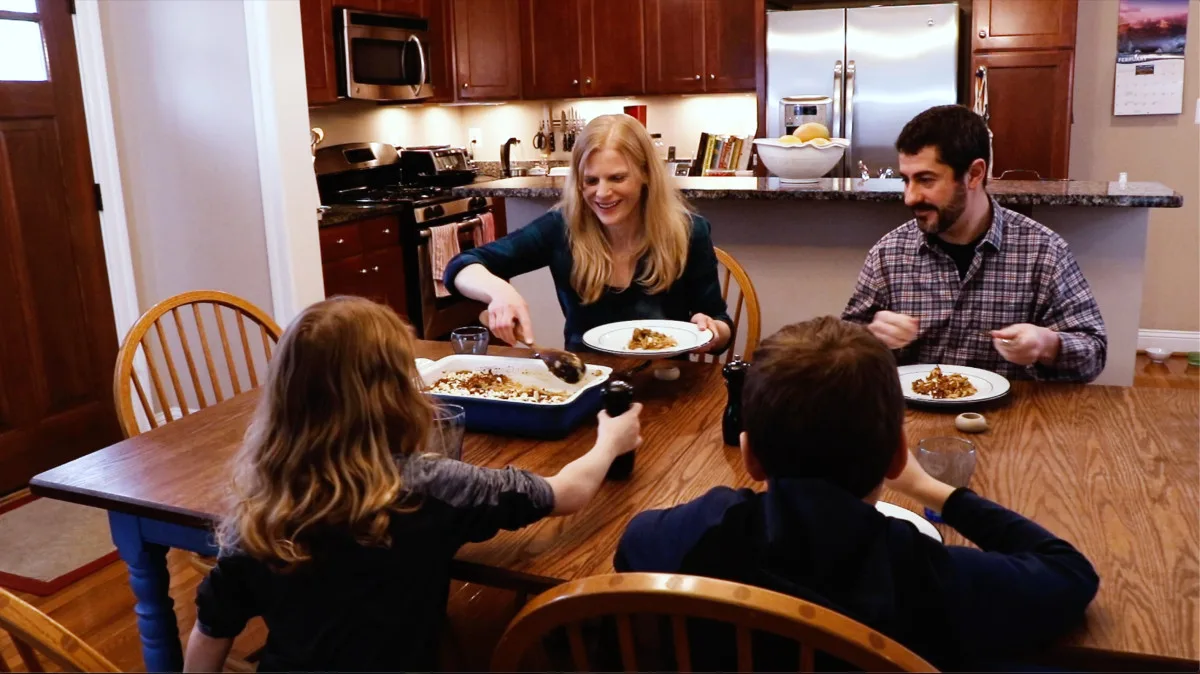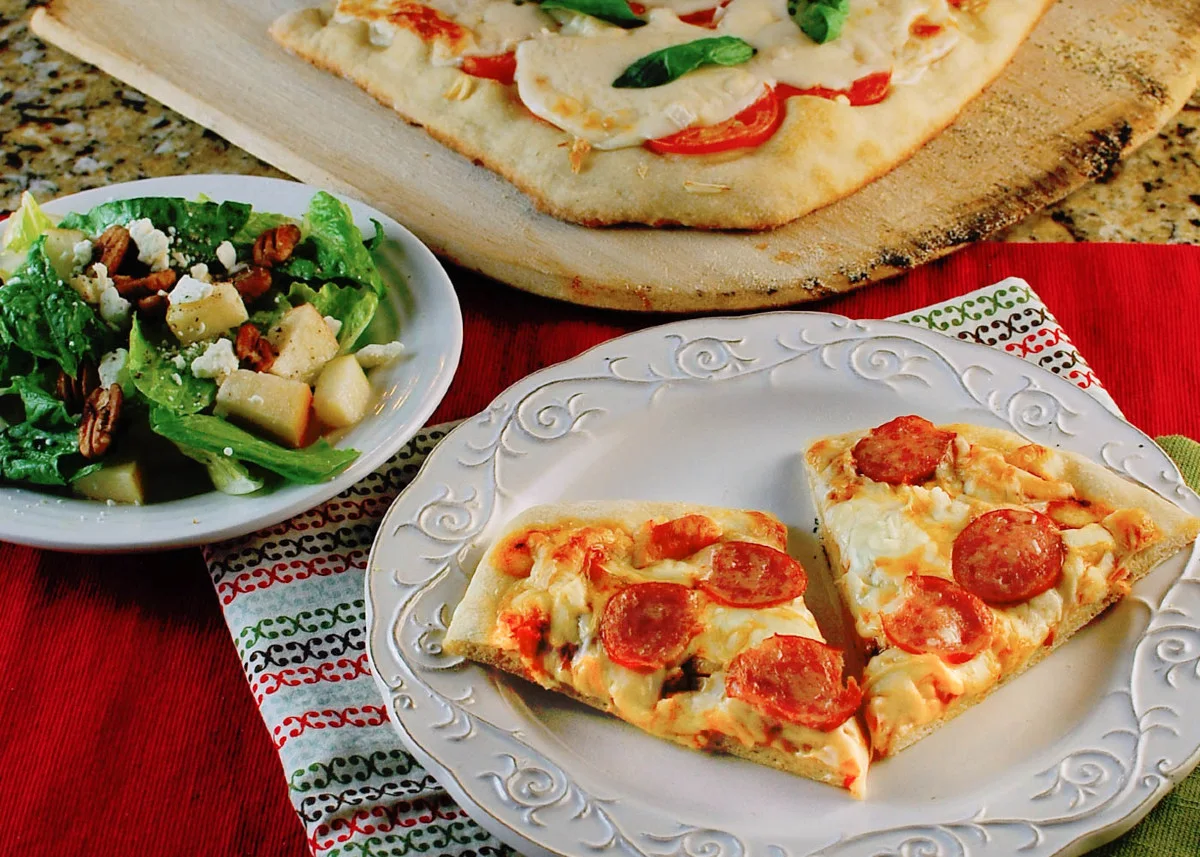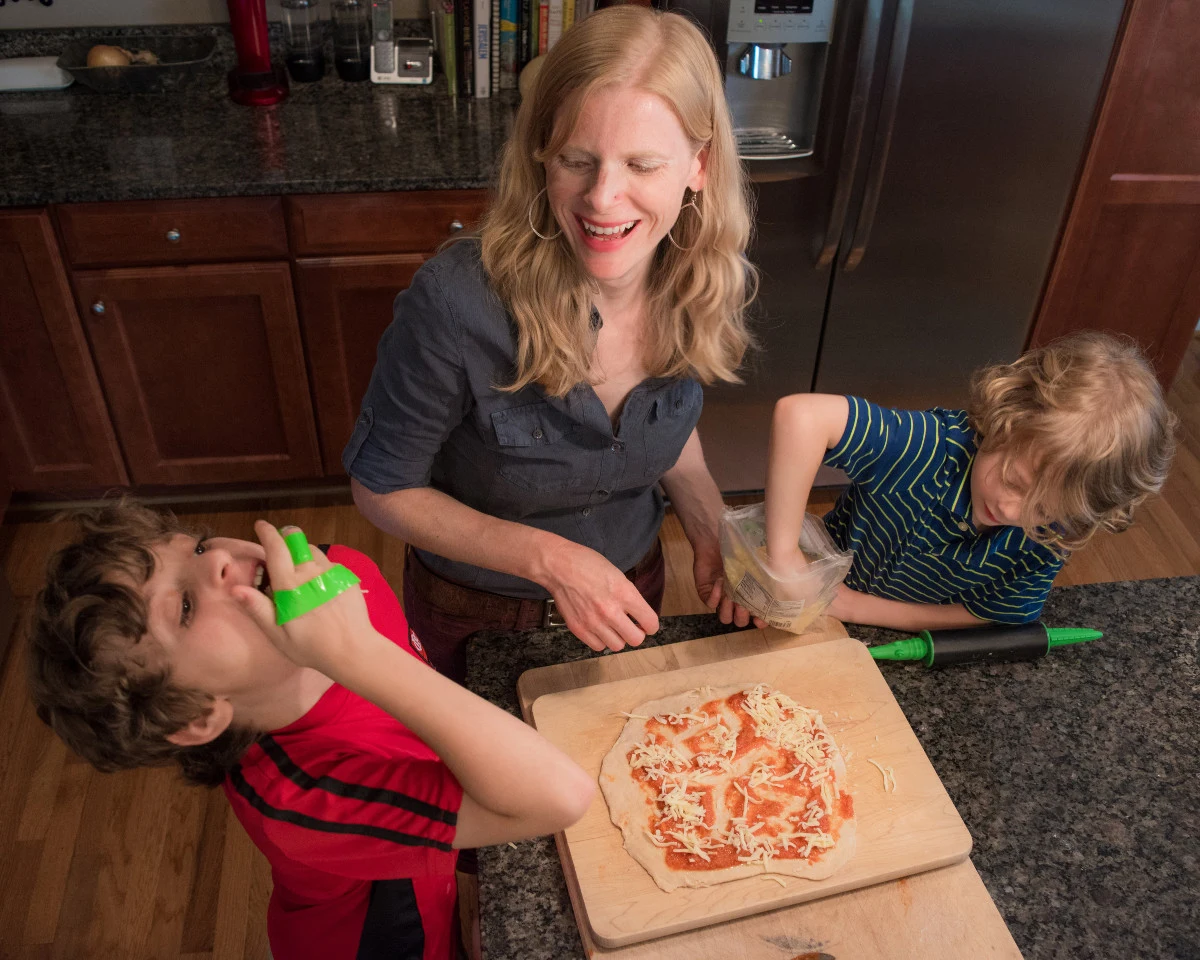
As parents, intuitively we know that family dinners are important for our kids’ healthy development. Not only is it a time when we can offer them nourishing food, but it is also often the one time each day that we stop running around, disconnect from technology, and actually connect with each other.
And it’s not just in our heads. These benefits are also born out in the research and statistics which show that family dinners not only provide nourishment for our children, but also help to protect them from other negative outcomes such as teen pregnancy and drug and alcohol abuse.
Healthy Family Dinners Aren’t About the Food
While we, of course, want to provide our kids with the healthiest meals possible, it is important to note that these positive outcomes are only partially due to the food that is served. A study in the journal Pediatrics found that it’s not just the act of having family dinners that keeps our kids healthier, but actually the emotional tenor of those meals which impacts our kids’ health and wellness. In fact, the more positive the dynamic, especially around food, the better the results for our children’s physical and emotional health and healthy eating habits. In short, the best way to make family dinners healthier has nothing to do with the food.
The study in the journal Pediatrics is a reminder to all of us Scramblers to keep our interactions at the dinner table positive and encouraging, rather than harping on our kids to finish their food, not overeat, or have the perfect tabled manners. Making family dinners a time of joy and emotional connection, a time that the whole family looks forward to, is more important than how long the meal lasts, who eats what, or even what we are serving.
So then the question becomes how to can we improve the dynamic at the dinner table?

How to Make Family Dinners Healthier: Change the Dinner Table Dynamic
As the research points out, while serving healthy meals is great, the real power of family meals is in the building of emotional connections. This means that we need to focus on making the dinner table a happy place, or at least not a stressful one. To my mind, there are three components that help create a positive environment at the table:
- Less stress about the food
- Saving tough conversations for another time
- Having fun

Stress Less About the Food
There are two ways that stress around food shows up at the table. One is that, as parents, we often worry that our kids aren’t eating enough “healthy” food and so we nag at or, at least, remind our kids to do “better” when it comes to eating. The second way that stress around food can show up is when your kids won’t eat what you’ve prepared.
Worrying Less About a Balanced Diet
Feeding our kids nutritious foods is often a priority. So, when we have an opportunity to sit down with them to share a meal, one of the things we often focus on is whether or not they are eating the “good” stuff. This can lead to pressuring our kids to eat more of whatever we worry they aren’t getting enough of (vegetables, protein, whole grains, you name it).
But, as parents, we also know that the more we push something, the less likely our kids are to do it. This is true for food as well. Sure, you might be able to get your kiddo to take one more bite of broccoli, but almost always that bite doesn’t come with a sudden realization that they love the food. In fact, more often than not, it reinforces their negative connotations with it.
So, instead, I recommend using a version of the Division of Responsibility approach to feeding your kids: you get to decide what is offered for meals, but they get to choose (from what is offered) what they will eat and how much. This approach is powerful because it takes the tension out of the situation and allows both sides to feel as if they have some control.
The other thing you can do is focus the energy you would spend worrying about what they eat on modeling that type of eating you hope your kids will eventually adopt: enjoy the foods that serve your body well, eat until you are satisfied, and listen to your body cues. They are watching and will pick up on your approach as they mature.
Not Taking Rejection Personally
The second way that stress around food can show up is when your kids won’t eat what you’ve prepared. Our lives are busy. So, when we take the time to prepare a well-balanced meal that we feel good about serving our families, the rejection of that meal can incite understandable frustration or even anger.
In this situation there are two things that I think can help. The first is to make food that you enjoy. Whether or not they eat the food will be their choice, but at least you will get a meal that you want to eat and can then model the kind of eating behaviors you would like to see from them (again, they are watching!). If you go this route, serving at least one food that they are willing to eat (it doesn’t need to be a favorite) can help with meltdowns and parental guilt.
The second approach that can help is to simplify what you make. There is no rule that says that a well-balanced meal has to take a long time. The point is to spend time together, so instead of making a complex meal, maybe keep it simple with some yummy sandwiches and a salad or breakfast for dinner (for more ideas or check out our ecookbook of recipes that take 15 minutes or less).
For more thoughts on handling these tensions, check out our post on what to do when your kid refuses to eat dinner.

Save Tough Conversations for Another Time
It can often feel like the only opportunity we have to check in about important issues or to teach our kids all the manners and behaviors we wish to see is when the family is all sitting down to a meal together. But, if we are trying to make meal times a pleasant experience when we build stronger bonds with one another, then filling that time with high pressure expectations can backfire. Here’s what I recommend instead.
Have Family Meetings
Set aside a time that is different from mealtimes that can be used to talk about important issues. This can be a standing weekly meeting or it can be implemented whenever necessary. This allows for everyone to come to the discussion ready and leaves the family dinners as a time for reconnection and fun.
Teach Manners, But Gently
Let me be clear, family meals are a good opportunity to teach table manners and general etiquette. In fact, it is one of the only times when we have this chance. But how we teach these things is important. I recommend that you set the expectations for behavior that are important to you, but when it comes time for reminders, do it gently and patiently. Here are some of the manners that we have worked on with our kids:
- Say please and thank you when you ask for things
- Use your utensils to eat (unless it is a finger food). This one also has included teaching them how to properly use their utensils
- Napkins go in laps
- Chew with your mouth closed
- Express appreciation to the person who prepared your food. Simultaneously, being rude about the food (saying “yuck” “gross” “eww”, etc.) is never allowed
During mealtimes, when we observe our kids not following these expectations, we will gently remind them (at this point it has mostly become one word, “napkin” or “knife”). If they continue with the behavior, we remind a second time. If it continues, we firmly remind them (no yelling). And if it still continues, then we have a conversation after dinner to remind them more fully of why these manners are important to us.

Have Fun at Dinner
Finally, and most importantly, aim to have family dinners be fun. In our house we play games, share stories about our days, and discuss world issues (in developmentally appropriate ways).
So let’s try to ease up a bit and not let our stress level take a toll on our kids, especially at the table. As Michael Symon, a well-known chef and Food Network personality, said “Every lesson I learned as a kid was at the dinner table…where we bonded and connected.” Let’s all make this true for our kids, too!
If you’d like to up the likelihood of having consistent family dinners, give The Scramble family meal planning service a try. The Scramble helps thousands of families with our ready-made, seasonal dinner plan for the week so they can let go of all the stress at 6:00 and bring joy and good nutrition to the dinner table. And, if you’re looking for something to cook tonight, give these Baked Mexican Egg Rolls or this Chicken or Turkey Pot Pie a try.

What to do When Your Kids Hate Dinner
Thursday 5th of October 2023
[…] of focusing dinnertime on eating, we now use it as family time. This helps to take the pressure off the food for me and for my kids. I no longer feel like I have […]